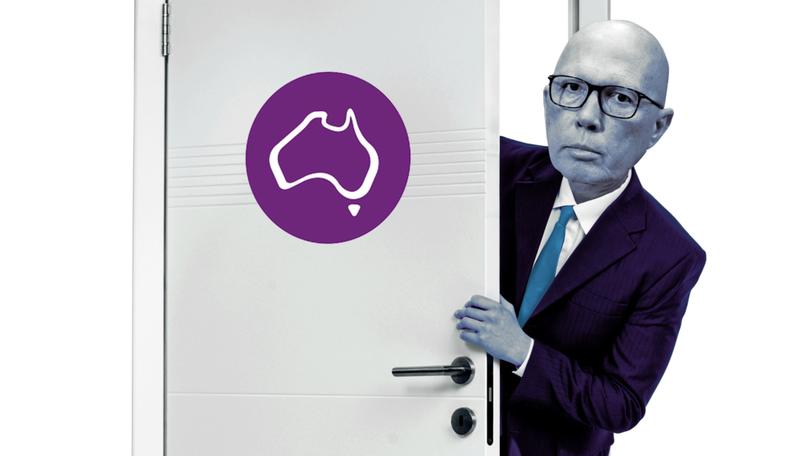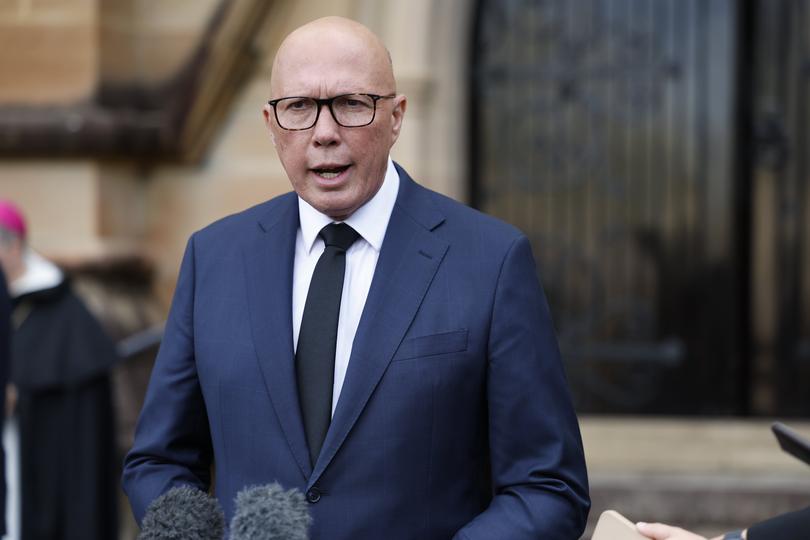MARK RILEY: With just nine Federal election campaign days left, it may be too late for Peter Dutton

Liberal campaign volunteers are reporting a perceptible change in the attitudes of voters answering their doors to them this week in Perth’s outer suburbs.
They suspect it won’t be enough, though, to alter the outcome in their target seats.
That’s because it is telling them two things.
Sign up to The Nightly's newsletters.
Get the first look at the digital newspaper, curated daily stories and breaking headlines delivered to your inbox.
By continuing you agree to our Terms and Privacy Policy.One is encouraging. The other, not so much.
First, it is confirming their deeply held belief that Peter Dutton was right to bin his policy forcing public servants back to the office full-time.
But, second, it is also suggesting that he took that important decision too late and should never have announced the promise in the first place.
A senior party strategist tells me fewer voters are now raising it as an issue in seats like Bullwinkel, Pearce and Tangney.
That is a big change.
In the first week of the campaign, volunteers were being peppered with complaints about the so-called productivity measure.
Labor was telling them that the change would quickly spread to the private sector, setting a new workforce-wide standard that would significantly tip the work-life balance in the wrong direction.
It was an issue that women voters in particular simply weren’t prepared to look beyond.
In campaigning terms, it was a “door-closer”.
It is no longer that.
Women are now more willing to allow Liberal volunteers to keep their doorstep conversations going long enough to hear about Dutton’s other plans, like cutting 25 cents a litre from the price of petrol and his $1200 cost-of-living tax bonus in July next year.
Those promises are beginning to cut through, not just in Perth but in commuter belts on the fringes of cities across the country.
The fear, though, is that it is all too late.
The return-to-the-office policy has ingrained damaging perceptions about Dutton’s character that cannot be reframed in the eight days left before polling day.
It certainly can’t change them in the minds of the 1.5 million Australians who have already cast their ballots at pre-poll stations.
More time and more detail could have turned this substantial policy into a vote changer.
Even though in the Coalition vernacular the policy is now dead, buried and cremated, it has still branded Dutton in the eyes of many women as an unreconstructed traditionalist.
They assume he is a man of Howardian family values, out of step with the complex demands of modern suburban life.
That perception is incorrect.
But as with so much in politics, what is true is not as important as what voters believe to be true.
If Labor does convert its lead in the polls into victory on Saturday week, there is little doubt that the Liberals’ post-election campaign review will highlight return-to-the-office as one of the primary villains.
The nuclear reactor policy will figure, too. The fact that Dutton hasn’t visited a single site during the campaign is a clear signal of how poorly that is going over with voters.
Then there’s the curious timing of the Coalition’s defence policy.
The promise to lift defence spending to 2.5 per cent of gross domestic product by 2030 and to 3 per cent of GDP in a decade is a substantial commitment.

It is also one capable of dragging the election conversation onto the Coalition’s favoured policy ground of national security.
It presents Dutton and his defence shadow, Andrew Hastie, with the opportunity to argue that their plan to substantially build Australia’s primary defence capabilities will better protect us from any threat posed by China and Russia.
But it came very late in the piece and without critical detail about what the money would be spent on and why. And that allowed Labor to fire broadsides that diminished its potential impact.
Under the sort of sustained questioning he would only face in the late stages of an election campaign, Dutton was forced to concede on Wednesday that much of the $21 billion he would spend on the plan over the first five years would come from repealing Labor’s promised $5 and $10 a week tax cuts.
Labor quickly posed a simple proposition: would voters prefer tax cuts or some unspecified and very expensive defence materiel?
The answer is pretty obvious.
They’ll take the money thanks.
More time and more detail could have turned this substantial policy into a vote changer.
Instead, it is another subject that is unlikely to be raised with Liberal volunteers as they continue to knock on suburban doors through the dying days of this campaign.

